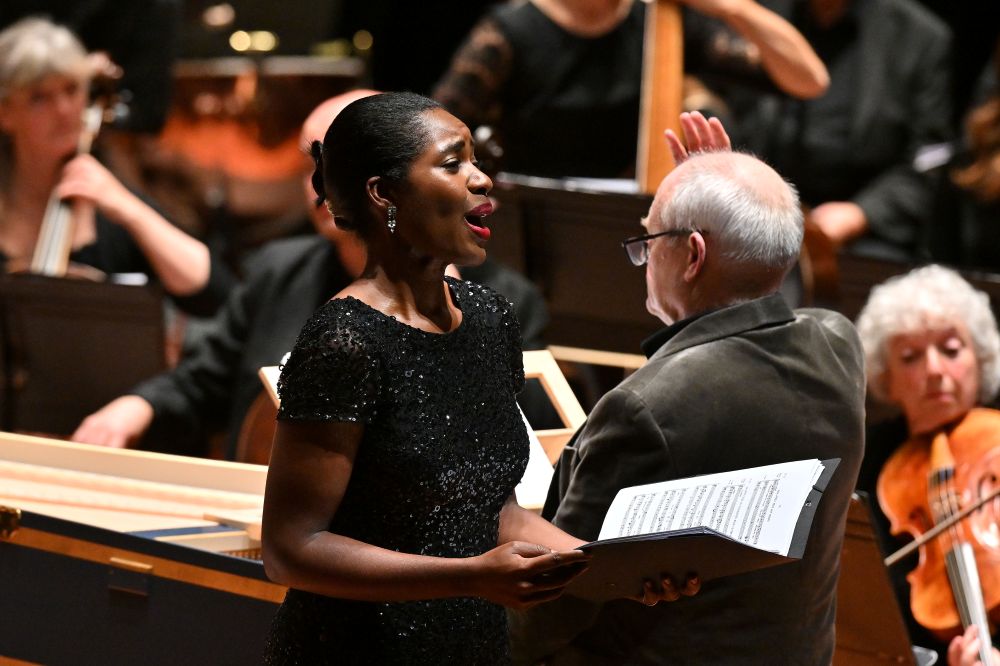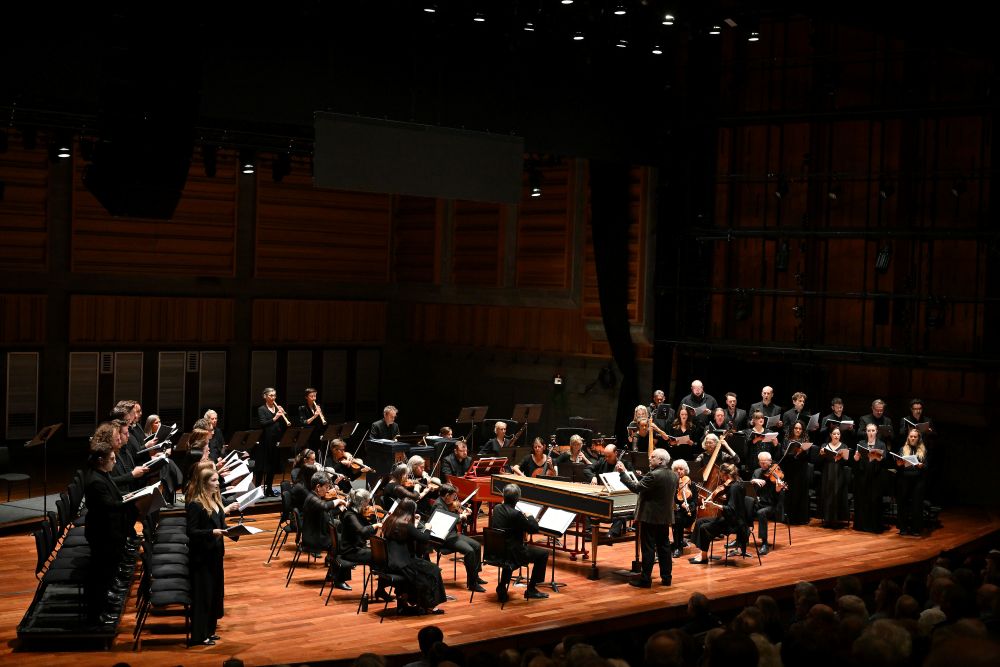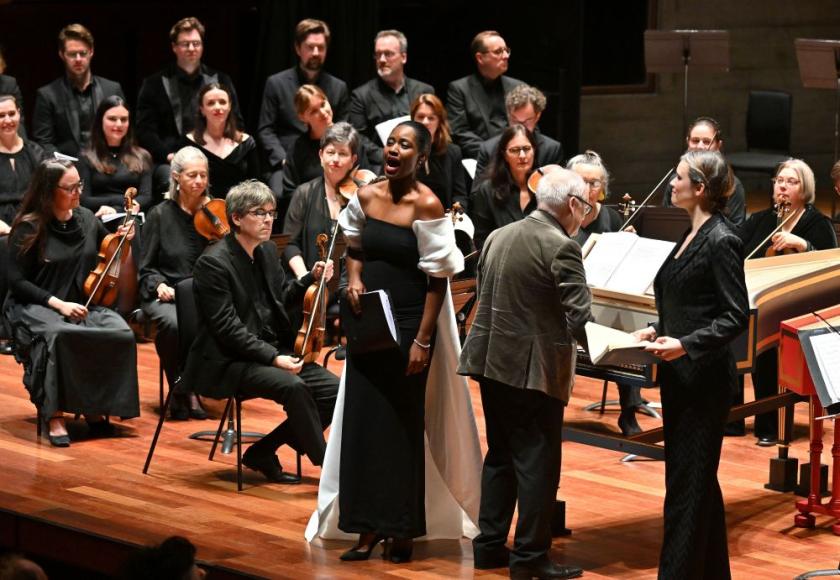Forty years ago, the Orchestra of the Age of Enlightenment was born, and I heard Handel’s Solomon in concert for the first time. Charles Mackerras’s sprightly performance convinced me it was a masterpiece. Now I’m not so sure, despite the presence of two national singing treasures, Nardus Williams and Helen Charlston, and great double choruses superbly delivered by 32 vibrant voices under the ever-reliable guidance of John Butt.
Bad librettos don’t usually detract from music as fine as Handel's, but this one takes the palm for silliness. Palms, in fact, and cedars and other Holy Land exotica give it local colour, but even if you knew Solomon was not as nice and wise as he’s endlessly painted here, and that he had 1000 women at his disposal rather then the single beauty of Act One, you’d find it hard to swallow. Charlston has a gift for instant characterisation, and the phrasing/ornamentation was impeccable as ever, but even she couldn’t do so much with a series of so-so arias until Act Three, when Solomon presides over a choral masque of varied moods which charms us even more in the wake of the impeccably buoyant Sinfonia we know as “Arrival of the Queen of Sheba”.  Nardus Williams (pictured above) in various “roles”, a soft-grained charmer well contrasted with Charlston’s cut and thrust, rose to the majesty of the second Queen here, glamorous dress change included. Her oddly plaintive sign-off, "Will the Sun Forget to Streak", did hit a high note with a lugubrious counter-line from flautists Lisa Beznosiuk and Neil McLaren and oboist Alexandra Bellamy. In the only dramatic stretch of the score, the scene of Solomon’s famous judgment over two women claiming the rights to a child, Angharad Rowlands stepped out of the choir to more than hold her own as the more strident of the two against Williams and Charlston; she deserved a proper credit at least as much as Florian Störtz, almost stumped by the low-lying start of the Levite’s first aria but impressive throughout the range.
Nardus Williams (pictured above) in various “roles”, a soft-grained charmer well contrasted with Charlston’s cut and thrust, rose to the majesty of the second Queen here, glamorous dress change included. Her oddly plaintive sign-off, "Will the Sun Forget to Streak", did hit a high note with a lugubrious counter-line from flautists Lisa Beznosiuk and Neil McLaren and oboist Alexandra Bellamy. In the only dramatic stretch of the score, the scene of Solomon’s famous judgment over two women claiming the rights to a child, Angharad Rowlands stepped out of the choir to more than hold her own as the more strident of the two against Williams and Charlston; she deserved a proper credit at least as much as Florian Störtz, almost stumped by the low-lying start of the Levite’s first aria but impressive throughout the range.
Inevitably the masque is reminiscent of an earlier extended hymn to St Cecilia in Alexander’s Feast. That many of us had recently heard that musical parade’s Dublin version from Peter Whelan and the Irish Baroque Orchestra at the Proms, with similar-sized forces, thrust home the difference between the great and the good. Butt always kept the OAE on its toes, but the phrasing and the emotional intent of this mostly veteran band felt clipped and contained by comparison – again, at least until Act Three. While Whelan and company triumphed in the vasts of the Royal Albert Hall, this crew may have been partly dampened in the QEH, which doesn’t help lift the sound.  That was never a problem for the OAE Choir. The antiphonal hurlings to ensure “distant nations catch the sound”, the glory anthem of "From the Censer Curling Rise" (appropriately close to the spirit of the Coronation Anthem “Zadok the Priest”, since the character appears here in the spirited form of tenor Hugo Hymas), the shaking of the dome in the magnificent bellicose chorus: these were memorably projected, the text always clear. But it seemed in “Praise the Lord with Harp and Tongue” as if Handel attains Bachian majesty and even depth. That was the undoubted crowning glory of many pleasures worth the haul.
That was never a problem for the OAE Choir. The antiphonal hurlings to ensure “distant nations catch the sound”, the glory anthem of "From the Censer Curling Rise" (appropriately close to the spirit of the Coronation Anthem “Zadok the Priest”, since the character appears here in the spirited form of tenor Hugo Hymas), the shaking of the dome in the magnificent bellicose chorus: these were memorably projected, the text always clear. But it seemed in “Praise the Lord with Harp and Tongue” as if Handel attains Bachian majesty and even depth. That was the undoubted crowning glory of many pleasures worth the haul.














Add comment